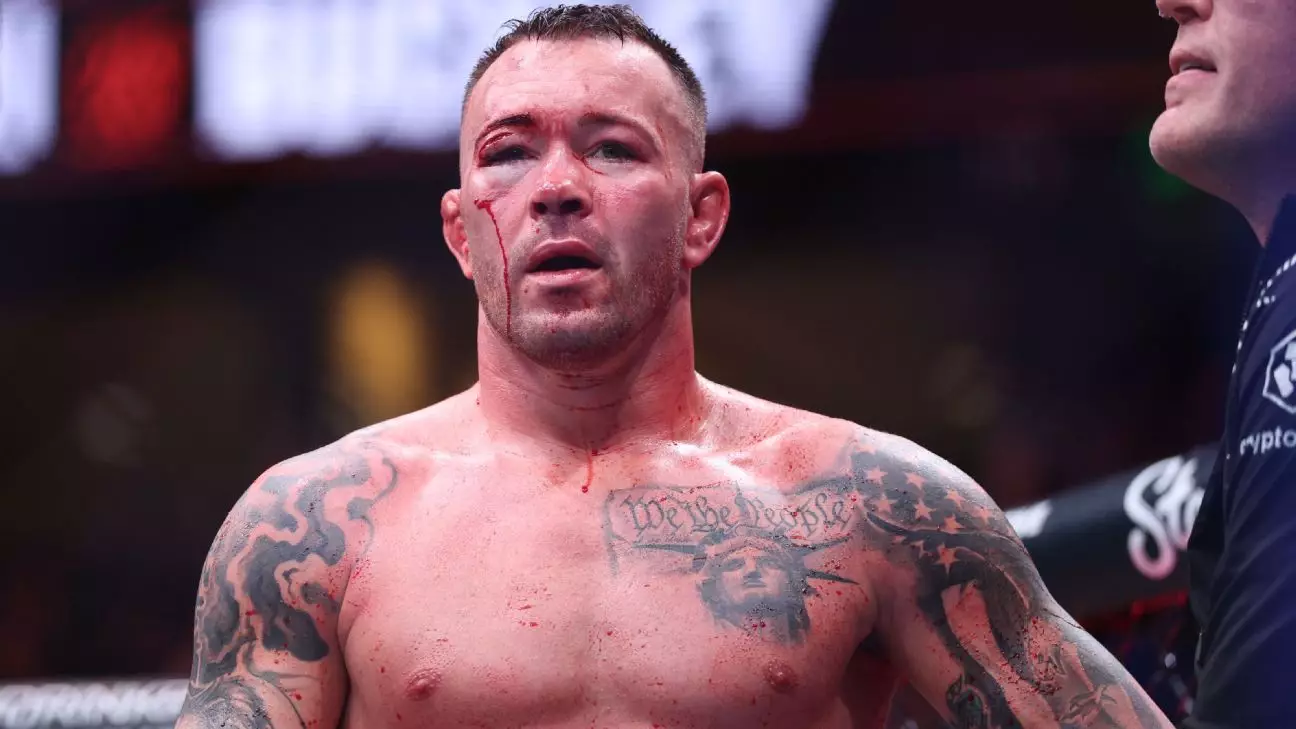Colby Covington’s recent bout against Joaquin Buckley at a UFC event in Tampa, Florida, ended in disappointment for the fighter and his supporters, particularly after he voiced his belief that the fight was prematurely concluded in the third round. The cessation of the contest stemmed from a severe laceration above Covington’s right eye, which prompted significant debate among fans, analysts, and even fellow fighters about the appropriate standards for fight stoppages in MMA. Covington’s frustration encapsulates a broader conversation about athlete safety versus competitive fairness, prompting questions around the criteria for stopping a fight, especially when the stakes are high.
Covington articulated that he felt the momentum of the fight was shifting in his favor. He noted, „I was just getting warmed up.“ This statement is significant as it reflects not only his physical state during the fight but also his mental tenacity. In the throes of competition, athletes often perceive a turning tide in their performance that may not be fully visible to spectators or officials. Covington’s assertion that he was beginning to dominate Buckley raises concerns about whether a doctor’s intervention can sometimes overlook the athlete’s will and resilience—a theme often echoed in combat sports.
Chael Sonnen, a respected figure in the UFC landscape, provides an essential perspective that underscores the complexities of such stoppages. His admission that he almost threw in the towel illustrates the delicate balance between the fighter’s desire to continue and the pragmatism essential for ensuring an athlete’s safety. He emphasized the critical nature of blood entering the eye, which poses a clear danger not only to the fighter’s ability to see but also increases the risk of further injury. Sonnen’s thoughts prompt a reevaluation of existing protocols, suggesting a need for clearer guidelines that allow for both urgent medical assessments and the acknowledgment of athlete intent.
Complicating the narrative further was UFC President Dana White’s commentary, which suggested that the stoppage might have been handled differently had the fight occurred in Las Vegas. This introduces an element of geographical inconsistency in fight management, highlighting the variance in how medical personnel approach fighter health in different locations. White’s remarks raise broader implications regarding the standardized application of fight safety protocols within the UFC, urging a reassessment of practices that could impact competitive fairness across various venues.
As Covington reflects on his performance and how it was curtailed, his outlook remains hopeful; he emphasizes the resolve to come back „stronger.“ This willingness to rebound after adversity encapsulates the spirit of many fighters. However, such incidents raise important questions regarding future bouts—specifically about how fighters will adapt not only physically but mentally to the pressures of both competition and medical scrutiny. Covington’s encounter will likely influence how similar situations are handled in the UFC moving forward, particularly with respect to balancing fighter safety with competitive integrity.
The stoppage in Covington’s fight exemplifies the nuanced challenges inherent to mixed martial arts, where the intersection of safety, fairness, and the fighter’s intrinsic motivation continuously shapes the sport’s evolution.


Napsat komentář